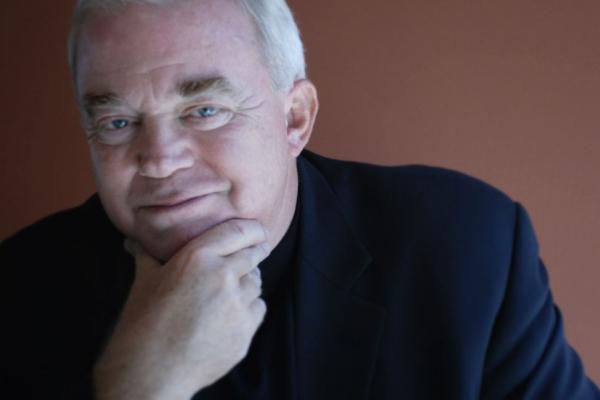I returned to Sojourners this week, after a three-month sabbatical. The time away was a deeply needed one, and did my soul good. It did my body good too, and I feel better than I have in years — much lighter and healthier than before.
Sunrise walks on the beach, yoga and prayer to the morning light, and then running along the waves put many things in perspective. Wonderful time with Joy and my boys — Luke and Jack — made me remember how blessed I am.
A main purpose of the sabbatical was to write a new book and, gratefully, I am now on the last chapter. It’s about “why Jesus came,” and the writing made me feel closer to him. Re-reading C.S. Lewis' Narnia chronicles, while on retreat at a monastery overlooking the Pacific Ocean at the beginning of my time away, set the tone for the sabbatical.
My favorite chapter in the new book is called “Aslan, Narnia, and the Living Teacher Who Walks Among Us.”
The new volume is also about “a gospel for the common good,” which is almost a foreign idea in our politics today. Watching politics for the last three months, but not engaging with them, showed me how depressing (a strong but accurate word) our political discourse has become — on all sides. This book attempts a response to all that — trying to lift up the common good, a new civil discourse, and the hope for common ground on important issues, even among people who will vote differently.
I spoke to those issues earlier this week at the Q Conference for young evangelical leaders here in Washington D.C., in dialogue with my friend, the Southern Baptist leader Richard Land. I haven’t been in a room with so many people for three months, and it was a little bit of a culture shock!
I said that Christians must never worship at the altar of politics. It is not our primary vocation and faith should not be squeezed into its narrow categories — that always misshapes our faith.
Our allegiance is to the kingdom of God, the new order that Jesus brought into the world and to our lives. And no political party will ever come close to representing that. People of faith should be the ultimate moral independents in politics, challenging both parties.
People of the kingdom should not serve politics; but we should serve the common good — seeking the welfare of the city we are in, as the prophet Jeremiah instructed. And we only engage politics when it is necessary to help the common good.
I suggested there are three values that Christians should try to serve in public life, and maybe especially during an election year:
- The common good, which both parties will compromise in order to win.
- Civility in our public discourse, which disappears during elections.
- And, if possible, Christians should try to find some areas of agreement or common ground that they might lift up, even together, despite other political differences.
For me, those areas of common ground could include:
- Defense of the poor, which neither party will champion during an election year — they all want donors and voters. How policies affect the most vulnerable is always the Christian political question; vital international and domestic poverty programs which allow the poor to survive and prevent their further suffering should be defended by Christians of all political stripes.
- A particular focus on how undocumented immigrants will be talked about and treated — the biblical “stranger” in our midst — and the urgent need for comprehensive immigration reform. Christians across political boundaries are coming together around the urgent agenda to fix a broken immigration system.
- Supporting policies that reduce abortion and that support strong families should be points of agreement between both liberals and conservatives, especially people of faith.
- Protecting religious liberty is a commitment we also share — both at home and around the world.
- Promoting foreign policies that seek to prevent and resolve inevitable human conflicts, instead of increasing them, should be something that Christians should also support because Jesus called us to be peacemakers.
It could be powerful and even provocative if Christians across the political spectrum were lifting up those values. Many younger believers from a new generation will not be voting for politicians or parties this election year. Instead, they will be engaging in a new post-candidate politics — voting for persons, values, and issues that compel them because of their faith.
They will be voting for those being sexually trafficked and sold, for school children who need an empowering education, for the one billion people who live on a dollar a day, for dads and moms who need to come home after multiple tours of duty in wars of occupation, for their friends who want to be judged as persons and not their immigration status, to protect the critical resources that replace poverty with opportunity, for our own children to have a cleaner planet, and for a consistent ethic of life that transcends partisan politics. Instead of voting for the candidates, the parties, and the Super-PACs, a new generation of believers will be voting for their values, their friends, and their own voices — voting for us. And that is hopeful to me.
I come back very grateful for the Sojourners team that made my sabbatical possible. Its leadership in this election year has already begun, and I hope to help out.
What I will be most looking for personally is a new balance in my life and work, to which precious sabbatical time often leads us.
And, most of all, I will be listening for the voice of Aslan, the lion who always seems to show up at the right time and place.
Got something to say about what you're reading? We value your feedback!
